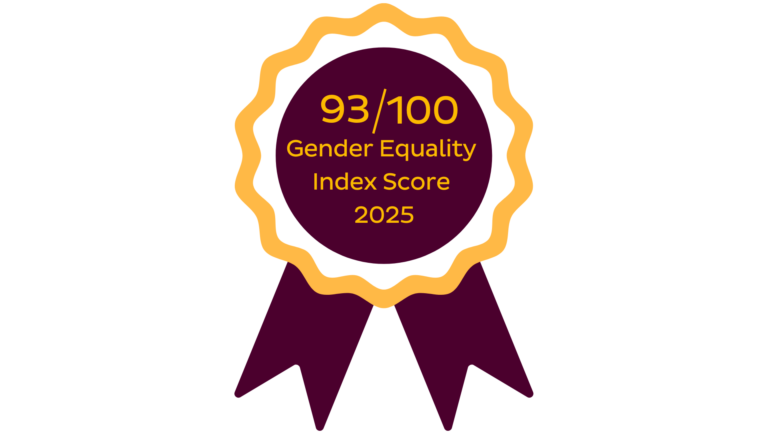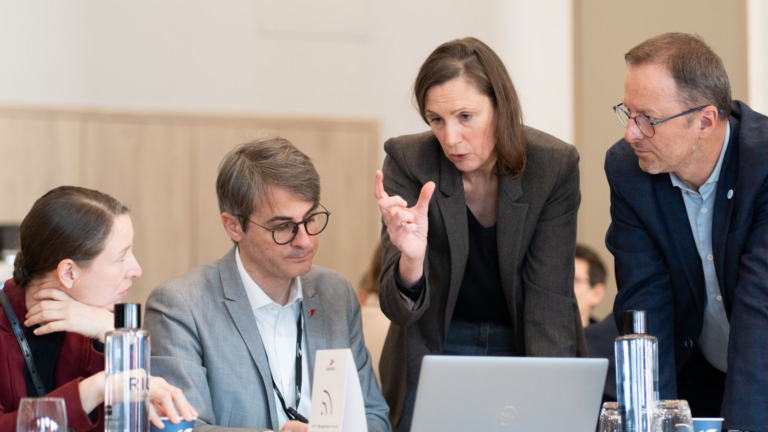Geopost’s 2025 Equality Edge
Group News 13 March 2025
For a fireside chat, Julie Gastard, Geopost’s Global Human Resources Executive, sits down with Nora Azzi, HR Director for Geopost’s HQ, to break down and discuss the Gender Equality Index rating we obtained at Geopost for France for 2025.
Julie: Nora, how would you comment on this 2025 Gender Equality Index we obtained at Geopost for France?
Nora: Our Gender Equality Index hit 93/100, which we can be very proud of. Not because we like to brag about good scores! But because this Index truly shows the results of a long-term engagement. We have shown that if perfect equality is not yet reached, we are amongst the best-in-class, which encourages us to further pursue our efforts.

Julie: Can you explain exactly what this Index is?
It is a legal obligation designed for French companies with 50 or more employees to show transparency in their equality governance by publishing yearly, by 1 March, the result of a series of calculations witnessing the reality on gender equity. Companies with more than 1,000 employees must also calculate and publish any gaps in representation between women and men among their senior executives and members of their governing bodies.
These results are reported to the French Ministry of Labour and, of course, to their employee representative groups.
Julie: How does it work for companies?
Nora: It works as a simple and practical tool allowing companies to measure the pay gaps between women and men and highlights areas for improvement when these disparities are unjustified. Companies that have obtained an overall score of less than 85/100 must set improvement targets and publish them on their website. Those having obtained a score lower than 75/100 must define adequate and relevant corrective measures by agreement or, failing that, by unilateral decision, and publish these measures.
Nora: A question for you, Julie, how does this encouraging score reflect a more global performance of Geopost in terms of Gender Equality?
Julie: First, we need to realize how important it is to not take equality for granted. Looking at global figures, we measure the gap: first, worldwide, and all sectors considered, women earn on average 20% less than men today.
Moreover, women are more subject to harassment; it is estimated that between 30% and 50% of women are victims of sexual harassment at work. Lastly, we are far from there in terms of leadership, as only 4% of CEOs and presidents of boards of directors are women. This is why it is illusory to bet on a “natural” rebalance of things. All players need to act, and Geopost is one of them.
We have set a goal to achieve 35% female representation in our workforce in 2025 and are implementing various initiatives to reach this target. As part of our ongoing efforts in recent years and in recognition of International Women’s Day, we have organised a conference for our employees worldwide to emphasise the connection between gender equality and business performance.
Our commitment to diversity is reflected in our engagement barometer, with 85% of employees affirming that everyone in their Business Unit is respected, regardless of their profile.
Additionally, we are dedicated to reducing pay gaps through a proactive approach, working closely with the Group's HR community to analyse and address remuneration disparities effectively.

